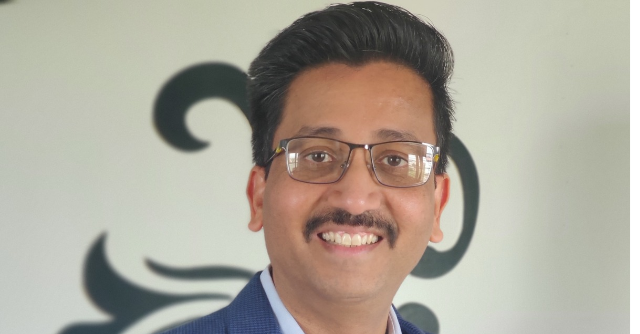
Unlike IT services' piecemeal approach, we focus on full-spectrum vehicle engineering: Tata Technologies' CTO


The automotive industry is rapidly embracing the concept of software-defined vehicles (SDV). Today, vehicles are evolving into high-performance computing platforms, and the overall industry is moving towards creating what could be described as "mobile phones on wheels."
SDV is an umbrella term that encompasses a variety of components. These include infotainment software systems, Advanced Driver Assistance Systems (ADAS), cybersecurity, vehicle testing, and more. Pune-based Tata Technologies counts SDV and by extension full vehicle engineering as one of its core propositions. “Vehicles are now evolving into high-performance computing platforms, and we're at the forefront of this transformation. We're engaged in cutting-edge work, developing multiple proof-of-concepts (POCs) and minimum viable products (MVPs) that explore how this evolution will unfold,” Sriram Lakshminarayanan, President and chief technical officer told TechCircle in an interview.
Comprehensive approach to vehicle engineering

Lakshminarayanan says that while IT companies have traditionally supported this area in parts, Tata Technologies takes a more comprehensive approach. “Often, IT companies have supported automotive projects in a piecemeal fashion, focusing primarily on areas like mobile app development or cloud hosting. We position ourselves as a full-spectrum vehicle engineering company. We combine our expertise in Full Vehicle Programs with cutting-edge technology, offering a cohesive, end-to-end solution.”
This comprehensive approach also involves integrating a robust technology layer. For instance, partnerships with chip manufacturers and vehicle OS developers are crucial, he says. To this end, Tata Technologies has collaborated with companies like ARM and NXP Semiconductors. The memorandum of understanding with Arm was signed in July, enabling the integration of Tata Technologies' software with Arm's Automotive Enhanced (AE) portfolio to speed up the development of high-performance vehicle computing systems.
In one of the major deals in this area, Tata Technologies in April partnered with German automobile company BMW Group to form a joint venture (JV) to deliver automotive software, including SDV solutions for BMW Group's vehicles and digital transformation solutions for its business IT. Under the agreement, the two firms are establishing automotive software and IT development hubs in Pune, Bengaluru, and Chennai.

“Going forward, We are making significant investments in our Global Practice function that I lead. We're doubling down on expanding our pool of global small and medium enterprises (SMEs) and enhancing our presence in key markets with market-facing SMEs. Additionally, we're heavily investing in R&D projects focused on developing MVPs, POCs, and other innovative solutions,” said Lakshminarayan.
Acquisition-led growth in ER&D
Beyond, SDV, engineering research and development (ER&D) is a huge growth opportunity area for Tata Technologies, Lakshminarayan said. In November 2023, Nasscom and BCG released a report which that India will likely contribute 22% to the Global ER&D sourcing market by FY30. Software, Automotive, and Semiconductor sectors are expected to contribute 60%+ of India's share of ER&D sourcing by FY30.

Amid limited organic growth opportunities, IT companies are increasingly using mergers and acquisitions (M&A) to enter this specialized field. Recent high-profile deals include Cognizant’s $1.3 billion acquisition of Belcan and Infosys’ purchases of In-Tech and InSemi. Midcap firms also actively engaging in acquisitions to enhance their expertise in sectors. Case in point is Coforge’s acquisition of Cigniti Technologies and Happiest Minds’ acquisition of Noida-based digital engineering firm PureSoftware Technologies.
"Acquisitions-led growth for IT services company in the ER&D sector is bound to happen across the industry, and we will also need to carefully consider our options. Our M&A strategy team continuously evaluates the pros and cons to determine what aligns with our goals. When the time is right, and there's a need for complementary skill sets that fit our objectives, acquisitions will certainly be on the table. However, I would say that while we may explore these opportunities in the three to five-year horizon, it's unlikely to happen in the short term.”
To be sure, in November 2023, Tata Technologies became the latest and the first initial public offering (IPO) for a group entity in two decades since Tata Consultancy Services’ IPO in 2004. In quarterly earnings announcement for Q1FY25, the engineering and digital services firm reported a slump in the net profit of 15% to ₹162 crore owing to declining revenue from its services segment and higher expenses. The company said that its total operating revenue rose 0.9% to ₹1,269 crore year-on-year (YoY) and fell 2.5% sequentially.

